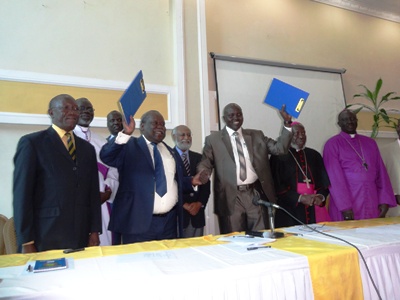US welcomes South Sudan peace deal with Yau Yau rebels
May 14, 2014 (JUBA) – The US government on Wednesday welcomed the signing of a peace agreement between the South Sudanese government and the Jonglei state-based rebel leader, David Yau Yau.

The statement comes days after the government and Yau Yau’s South Sudan Democratic Movement Cobra Faction signed a peace agreement in the Ethiopian capital, Addis Ababa on 9 May.
“We are hopeful that with the leadership of both sides of this conflict committed to the agreement there will be sustainable peace in Pibor County and throughout Jonglei State. We applaud the Government of the Republic of South Sudan and the SSDM/A – Cobra Faction for demonstrating their commitment to peace through negotiations”, the statement notes in part.
The US cautioned that the successful implementation of the agreement will take the full effort of both sides.
“We encourage both the South Sudanese government and the forces of David Yau Yau to exhibit the leadership necessary to see this agreement through even as challenges arise”, further adds the release.
The embassy also appealed to the communities of Jonglei state – the youth, women, chiefs and others – to stand together, across geographic and community lines, and deliver a common message that “the people of Jonglei state stand united for peace”.
Yau Yau first rebelled in 2010 in protest against his failure to be declared the winner of a seat in the Jonglei state legislative assembly, claiming that there were electoral irregularities in favour of his political rival.
His rebellion swiftly became a significant security threat, especially in Pibor county, – where he was based drawing on support from his Murle community – and neighbouring areas. Scores were killed in the conflict, while several others have been displaced.
In 2011, he accepted and responded to president Salva Kiir’s amnesty offer and returned to Juba where he was promoted to the rank of major general in the Sudan People’s Liberation Army (SPLA). In 2012, however, he quit the army accusing the government of failing to honour the terms of the agreement signed.
(ST)
